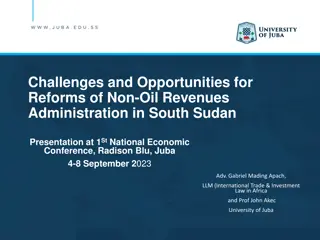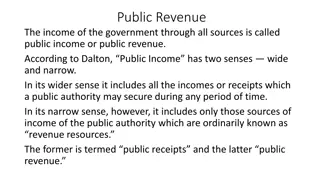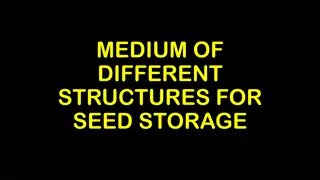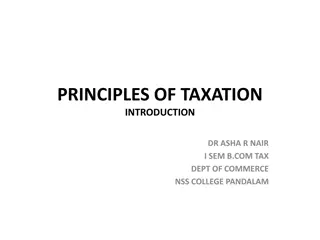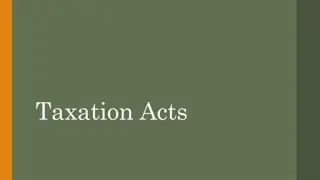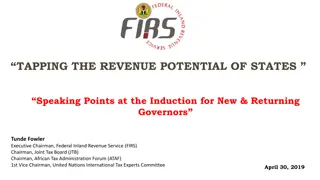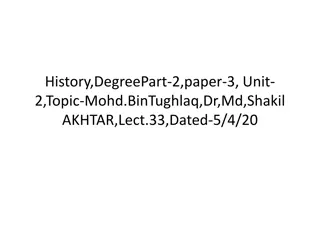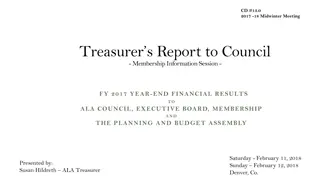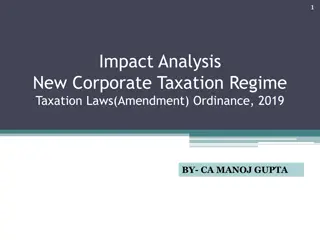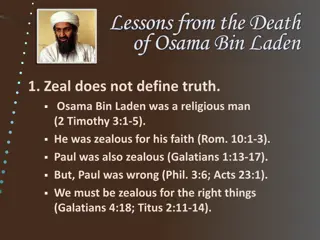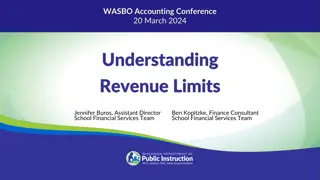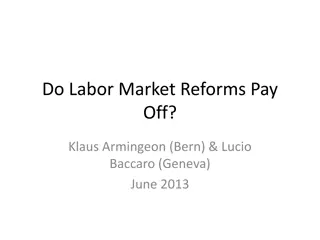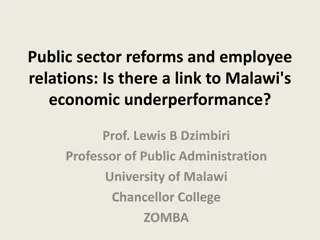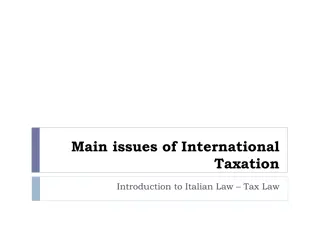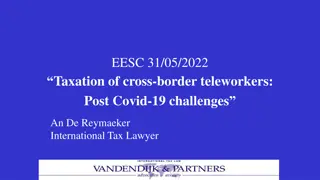Revenue Reforms and Taxation Policies of Muhammad bin Tughlaq
Muhammad bin Tughlaq, known for his wisdom, implemented bold reformative measures in his rule. He initiated revenue reforms by assessing the country's income and expenditure through the compilation of province-wise registers. However, his decisions, such as increasing taxation in the fertile Doab region without factual assessment, led to serious peasant discontentment and exacerbated by the looming famine.
Download Presentation

Please find below an Image/Link to download the presentation.
The content on the website is provided AS IS for your information and personal use only. It may not be sold, licensed, or shared on other websites without obtaining consent from the author.If you encounter any issues during the download, it is possible that the publisher has removed the file from their server.
You are allowed to download the files provided on this website for personal or commercial use, subject to the condition that they are used lawfully. All files are the property of their respective owners.
The content on the website is provided AS IS for your information and personal use only. It may not be sold, licensed, or shared on other websites without obtaining consent from the author.
E N D
Presentation Transcript
History,Degree Part-2,Paper-3,Unit- 2,Topic-Mohd.Bin Tughlaq,Dr.Md.Shakil Akhtar,Lect.32,dated-4/5.20
Domestic measures: Muhammad bin Tughlaq was well known for his wisdom and character. That is why right from the beginning of his rule; he decided to take some bold reformative measures for the improvement as well as safeguard of the country. Revenue Reforms: At first Muhammad-bin-Tughlaq wanted to make an assessment of the total income and expenditure of the country.
He therefore issued an ordinance for the compilation of a register showing the incomes and expenditures of the provinces. The governors of the provinces were directed to submit the documents showing their incomes and expenditures and other necessary materials for the compilation work. He opened a separate office where a large number of clerks and officers were appointed to do the compilation work.
He did it in-order-to introduce a uniform standard of land revenue as well as to assess every village of his kingdom. It was definitely a praise-worthy step of Muhammad-bin- Tughlaq. Taxation in the Doab: The increase of taxation in the Doab Region was an ill measured step on the part of the Sultan Muhammad-bin-Tughlaq.
No doubt the Doab region between the Ganga and Yamuna was highly fertile and production was more than any other part of the country, but hike in the tax came at a wrong time and assessment of revenue was not based on the factual report. Peasants were paying the land revenue tax almost the half of the produce since the time of Ala-ud-din Khilji.
Therefore, another increase in the land revenue tax upto ten percent more in the Doab by the Sultan Muhammad-bin-Tughlaq, definitely created serious peasant discontentment. This also came at a time when the Doab was at the verge of a famine. This made the situation more deplorable. On the other-hand, the officers engaged in the duty of tax collection could not try to understand the situation and went on collecting the taxes.
Peasants unwilling and unable to pay tax, fled away from the villages and Muhammad-bin- Tughlaq took harsh measures to capture and punish them. Muhammad-bin- Tughlaq realized the problem but it was too late. He made all possible efforts to restore them to their houses and supplied all sorts of agricultural helps and loans to revive their economic standard.
In order to bring an improvement in agriculture, Muhammad-bin-Tughlaq decided to undertake a number of measures and he, therefore established a department of agriculture called Diwan-i-kohi. The department s main work was to find out uncultivated lands and make all sorts of arrangements for the cultivation of horse lands. At first a large area of land say sixty square miles in area was taken up in the project.
A large number of peasants were engaged in the work of cultivation. They were supplied with all sorts of agricultural instruments and seeds. They were asked to grow different crops in rotation. A large number of officers and guards were appointed to look after the project. The government spent over it more than seventy lakhs. In spite of this, the scheme failed miserably.
Firstly, the land chosen for cultivation was not fertile. Secondly, the officers lacked experience which accounted for bad planning or faulty implementation. There were also some corrupt officials who misappropriated a huge amount of production and money. Lastly, it was a novel experiment, therefore, required more time and attention on the part of the Sultan which he could not give. He could have tried more to improve it.
Reference https://www.historydiscussion.net/biography/ biography-of-muhammad-bin-tughluq-1325- 1351/3044/. Chandra, Satish: Medieval India: From Sultanat to the Mughals. New Delhi: Har- Anand Publications. 1997.



